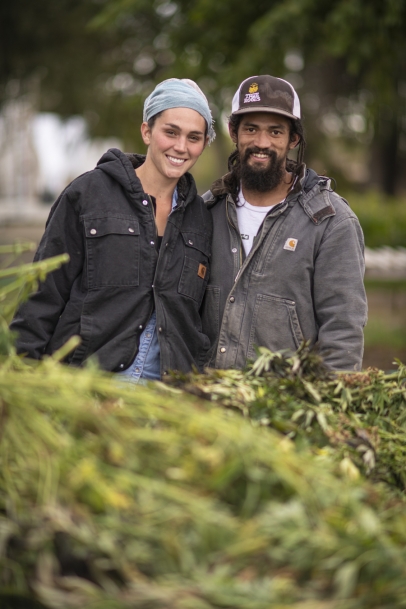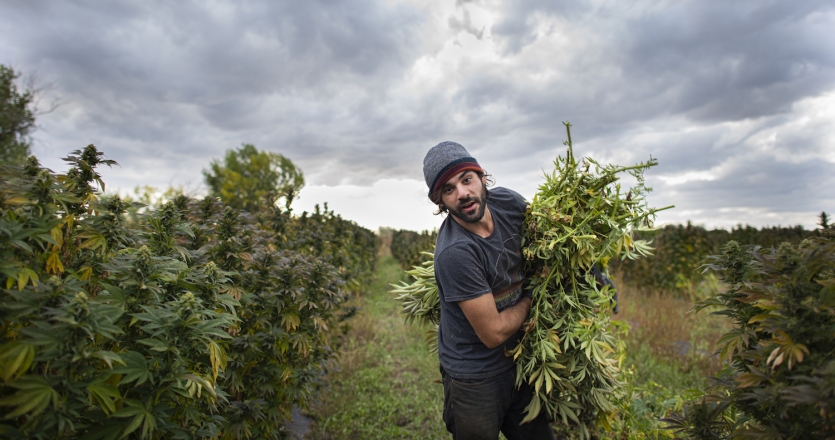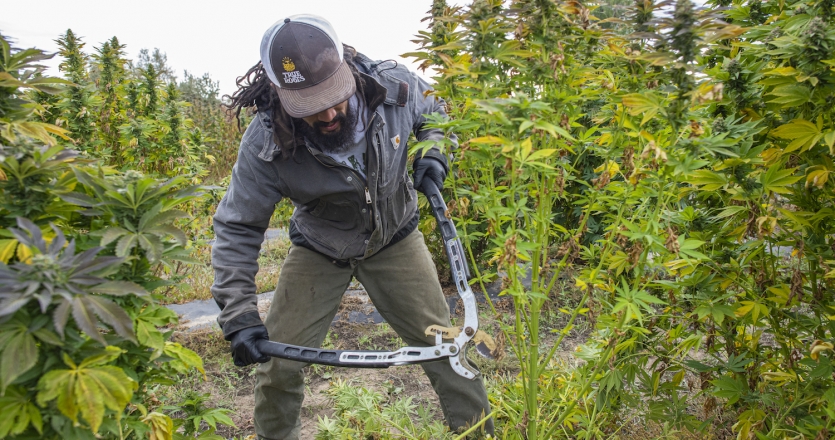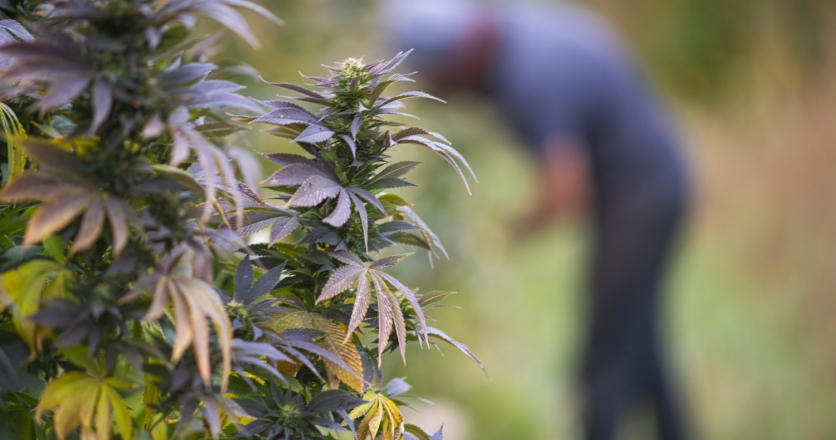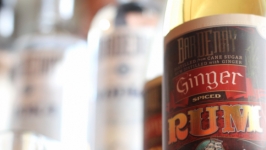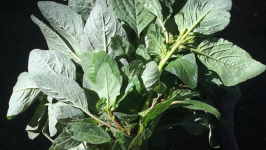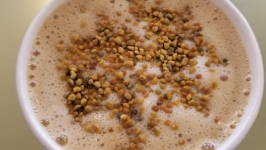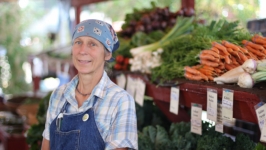The Last State Standing
To paraphrase Dorothy in The Wizard of Oz, I know I’m not in Idaho anymore as soon as I rumble down the dirt road that leads to True Roots Organic Farm near Nyssa, Oregon. A fittingly cinematic storm builds on the western horizon—along with a distinctive resinous aroma—as I approach what looks like a Christmas tree farm on the western bank of the Snake River.
But those trees aren’t trees, they’re hemp plants dripping odiferous resin. And if those tall rows of CBD-laden Cannabis sativa were growing on the Idaho side of the Snake, we’d have more to worry about than an approaching October storm.
Unlike Oregon—or most of the country, for that matter—hemp is still illegal across that river, lumped together as a Schedule 1 narcotic with marijuana and heroin. And that’s a big reason why native Idahoans Kelsey and Ian Kilgore moved their farm to Oregon.
Oregon may not be Oz but it’s decidedly more cannabis-friendly than Idaho: Oregon became the first state in the union to decriminalize the possession of small amounts of marijuana, one of the first to legalize its medical use and was quick to embrace production of hemp (defined as cannabis with less than 0.3% THC, the psychoactive compound in marijuana) as soon as the recent U.S. farm bill declared it an ordinary agricultural commodity at the end of 2018. (Prior to its prohibition, hemp was a prized crop throughout America, used to make the original American flag and Benjamin Franklin’s kite string.)
In June 2019, Oregon State University also announced the launch of its Global Hemp Innovation Center, billed as the largest in the nation, with 40 scientists focusing on hemp and its market potential— and no one argues that hemp, with thousands of commercial uses, has market potential. It just won’t get you high. As one farmer put it to me, “You’d get higher smoking alfalfa.”
By comparison, Idaho is only one of two or three states left that still declares hemp illegal within its borders (I’m hedging those numbers because even the holdouts are looking at legalization). Instead of a research center, Idaho gained national press in January 2019 for confiscating 6,700 pounds of industrial hemp while jailing the truck drivers caught transporting it from one hemp-legal state (Oregon) to another (Colorado). “To put it bluntly,” the Canna Law Blog, which provides legal support for what it calls the “Cannabis Business Community,” wrote “Idaho is probably the worst state in the country to get caught with hemp . . . If you are a stakeholder in this industry, avoid Idaho at all costs.”
In part to alleviate such harsh criticism, Idaho Gov. Brad Little issued an executive order on November 19th, 2019 authorizing the interstate transportation of hemp through the state, while continuing the ban on hemp production and refinement with its borders.
Although Kelsey and Ian Kilgore are native Idahoans with deep family ties to the Gem State, they had no second thoughts about moving to the Oregon side of the river.
“We just love the spot,” says Kelsey of the four-acre, certified-organic farm they leased a couple of years ago. The scenic Snake River is high, wide and just a hemp seed’s throw from their farmhouse and fields.
While growing organic produce in Idaho, the Kilgores worked land in Star, Kuna and on Kelsey’s fourth-generation family farm near Marsing. During those years, True Roots Organic Farm became a fixture at the Boise Farmers Market, its booth a kaleidoscopic display of kale, carrots, tomatoes, peppers and more. But like other small-scale vegetable farmers, the Kilgores struggled to make ends meet simply selling high-quality produce.
Our best crop, heirloom tomatoes, retails for $4 to $5 a pound,” Ian says of one of the organic crops the couple still sells at the Boise Farmers Market (an hour’s drive from their Oregon farm). “And this [hemp],” he says as he holds up a thick, green bud, “can wholesale for $150 to $300 a pound. If you’re selling smaller [retail] quantities, the price is around $500 a pound, depending on the CBD percentage, depending on the THC percentage.”
That dramatic price differential has drawn more than a few Idaho farmers to Oregon as well as opened the eyes of several rural Idaho lawmakers.
“It’s really important for our farmers to have a viable crop to produce,” says Representative Caroline Troy. “And one of the most important things is for them to have some diversity in crops so that they don’t have to depend on how the wheat prices are doing or how the garbanzo prices are doing in order to make their ends meet.”
Troy sees hemp as a promising way to diversify Idaho agriculture, so this North Idaho Republican introduced a bill last year to legalize it. The bill failed, but she’s determined to try again with a revised bill for the 2019–20 legislative session.
Representative Troy sees potential statewide: Since southern Idaho is one of the biggest seed producers in the world, she says it could grow and market hemp seed (which, according to Ian Kilgore, is going for a stunning $1 per seed right now); she’s talked to the Clearwater Paper Company in Lewiston about using hemp fiber to produce paper (the Declaration of Independence was written on hemp paper); and she believes cottage hemp production and processing could help struggling towns all over the state.
“I think we’ve got to be more creative in Idaho,” Troy says, “and look for those kinds of unique niche marketing opportunities that will help these rural communities keep their kids home and bring in some good jobs.”
Because of hemp’s small-scale, value-added potential, Troy says it could become part of the “local food movement or maybe a more local processing movement . . . It allows for some economic development opportunities in some of these little communities that have a hard time attracting a Chobani [the world’s largest yogurt plant, located in Twin Falls].”
True Roots Organics is a perfect example of that small-scale model: As storm clouds pile up, Ian and Kelsey Kilgore show me their shed and the small table they sit at to trim hemp flowers with scissors, one flower top at a time: “We make balms,” Ian says, “we make lotions, we make oils, we do pre-rolls, we sell the flower. And it just opens up a huge, different market . . . On small acres, we can actually have a cash crop.”
Unlike THC (tetrahydrocannabinol, which occurs in much higher concentrations in hemp’s cousin, marijuana), scientific evidence suggests that CBD could be an important treatment for childhood epilepsy, anxiety, chronic pain, insomnia and numerous other ailments.
Along with farmers, like the Kilgores, who focus on hemp’s resinous flower tops and the CBD oil they contain, others see value in the plants’ woody stalks and stems, which can be processed as building material or fiber for clothing, or in the hemp seed, which can be turned into nutritious food products.
Tim Cornie and Kurt Mason, who recently refurbished the old Pillsbury plant in Buhl to process organic beans, flour and popcorn, are eager to see hemp legalized in Idaho. Their 195,000-square-foot plant, called 1000 Springs Mill, has drying equipment that Cornie says could process 14 semi-truck loads of hemp seed at a time.
Cornie believes that Idaho farmers are missing an opportunity that nearly every other state has embraced. “And if we get behind, we can’t catch up.”
Another Idaho business owner, Paul Frantellizzi, isn’t waiting to catch up.
“We are Joyful Hemp, a new hemp company that is focusing on building wellness products with a hemp base,” Frantellizzi says. “We live in Boise, but we don’t produce here or manufacture here. We’re forced to manufacture outside of the state of Idaho.”
Frantellizzi, who ran a successful chocolate company in Boise for years (profiled in the Spring 2015 issue of Edible Idaho), hopes the Idaho legislature will legalize hemp in the coming session.
“If that happened,” he says, “we could produce here; we could do skin care, body care, wellness products, food products—and we would be creating tons of jobs and running our full business here as opposed to just an office space with phones.”
Frantellizzi says, “We think we could be a $200-million business in two years. And we’d love to bring it here to Boise.” In so doing, he thinks Idaho farmers, especially young farmers, would benefit.
“You see young people getting away from those family farms and going into other types of businesses—hemp has the ability to bring those young millennial farmers back into the fold. And what that does is build healthy communities.”
Back at True Roots, I watch millennial farmers Ian and Kelsey cut limbs off their hemp plants for drying as the sky goes from merely dark to menacing. When the wind hits and then the rain, we all grab armfuls of cut hemp and run it into the shed as fast as we can.
Later, as I’m driving back to Boise through a glistening, post-storm glow, I realize my instinct to help the Kilgores might not appear a benevolent act to an Idaho State Police officer who, if he happened to pull me over, would find my clothes reeking of cannabis oil, my hair flecked with cannabis leaf.
Instead, I keep my eyes on the road, my speed in check, and wonder if Idaho will learn to live, perhaps even flourish, with legalized hemp. After all, there’s no place like home.
True Roots Organic Farm | @truerootsorganics
Global Hemp Innovation Center
Boise Farmers Market | @boisefarmersmarket
Clearwater Paper Company
1000 Springs Mill
Joyful Hemp | @joyfulhemp


